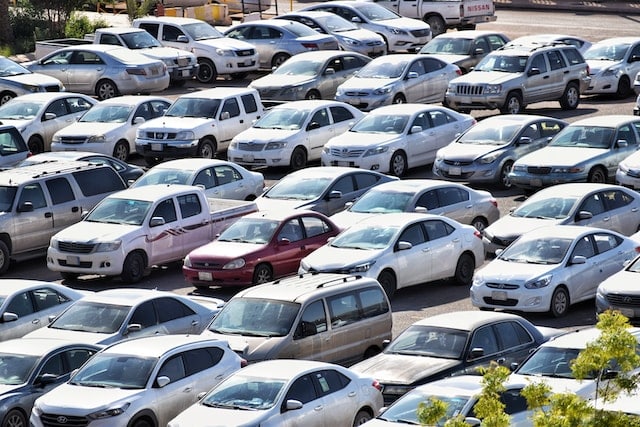
Car recalls are an essential aspect of vehicle ownership that should never be overlooked. These recalls are issued to protect drivers, passengers, and the general public from potential safety hazards. This article will discuss the nature of car recalls, whether they expire, and how to handle them to ensure the safety and longevity of your vehicle.
What is a car recall?

A car recall is a notice issued by a vehicle manufacturer when a specific make, model, or production year has been found to have a safety-related defect or does not comply with federal safety standards. These recalls can be initiated due to issues with airbags, brakes, fuel systems, or other critical components that could impact the safe operation of the vehicle.
Manufacturers are required by law to notify registered owners of affected vehicles and provide a free remedy to fix the issue. In some cases, the manufacturer may offer a repair, replacement, or refund to address the problem.
Do car recalls expire?
The good news is that car recalls generally do not expire. As long as the vehicle is in operation, manufacturers are obligated to provide a free remedy for any safety-related defect. However, there are a few factors that may impact a recall’s expiration:
- If the vehicle has been deemed “totaled” or “salvage” by an insurance company, the recall may no longer apply.
- If the defective part has already been replaced in a previous repair, the recall may not be relevant.
Despite the fact that car recalls typically don’t expire, it’s essential to address them promptly. Ignoring a recall may put you, your passengers, and other drivers at risk of injury or even death in the event of an accident.
How to check for car recalls
To check for car recalls, you’ll need your vehicle identification number (VIN), a unique 17-character code assigned to your vehicle. You can find your VIN on your vehicle’s dashboard or driver’s side door jamb. Once you have your VIN:
- Visit the National Highway Traffic Safety Administration (NHTSA) website and enter your VIN in the recall lookup tool.
- Check the manufacturer’s website for recall information specific to your vehicle.
- Register your vehicle with the manufacturer to receive recall notices directly.
How to handle a car recall
If you discover that your vehicle is subject to a recall, take the following steps:
- Contact your local dealership or the vehicle manufacturer for more information about the recall and the remedy provided.
- Schedule a repair or replacement appointment with the dealership. Repairs related to recalls are typically performed at no cost to the owner.
- Understand your rights as a consumer, including any potential reimbursements for repairs made before the recall was issued.
Tips for staying informed about recalls
To stay informed about car recalls and ensure your vehicle’s safety, consider the following tips:
- Sign up for recall alerts through the NHTSA website or your vehicle manufacturer.
- Regularly check for recall updates, as new recalls can be issued at any time.
- Ensure that your contact information is up-to-date with the vehicle manufacturer so you can receive recall notices promptly.
Addressing car recalls is a vital aspect of vehicle ownership that ensures the safety of all drivers and passengers on the road. Though car recalls generally do not expire, it is crucial to address them as soon as possible to minimize risk. Stay informed about recalls and take appropriate action to maintain your vehicle’s safety and performance.
Frequently asked questions about car recalls

Q: What is a car recall?
A: A car recall is a notice issued by a vehicle manufacturer when a specific make, model, or production year has been found to have a safety-related defect or does not comply with federal safety standards. Manufacturers are required to notify registered owners of affected vehicles and provide a free remedy to fix the issue.
Q: Do car recalls expire?
A: Generally, car recalls do not expire. As long as the vehicle is in operation, manufacturers are obligated to provide a free remedy for any safety-related defect. However, certain factors, such as a vehicle being deemed “totaled” or “salvage” by an insurance company, may impact the recall’s applicability.
Q: How do I check for car recalls?
A: To check for car recalls, you’ll need your vehicle identification number (VIN). You can use your VIN to search for recalls on the National Highway Traffic Safety Administration (NHTSA) website or your vehicle manufacturer’s website. Registering your vehicle with the manufacturer can also ensure you receive recall notices directly.
Q: What should I do if my vehicle has been recalled?
A: If your vehicle is subject to a recall, contact your local dealership or the vehicle manufacturer for more information about the recall and the remedy provided. Schedule a repair or replacement appointment with the dealership, as repairs related to recalls are typically performed at no cost to the owner.
Q: How can I stay informed about car recalls?
A: To stay informed about car recalls, sign up for recall alerts through the NHTSA website or your vehicle manufacturer, regularly check for recall updates, and ensure your contact information is up-to-date with the vehicle manufacturer.
Q: Are recalled vehicles safe to drive?
A: The safety of a recalled vehicle depends on the specific issue and the severity of the problem. In some cases, vehicles may be safe to drive until the recall repair is performed, while in other instances, driving the vehicle may pose a significant risk. Contact your local dealership or vehicle manufacturer for guidance on whether it is safe to continue driving your vehicle.
Q: Can I sell a car with an open recall?
A: While it is possible to sell a car with an open recall, it’s best to address the recall issue before selling the vehicle to ensure the safety of the new owner and to potentially increase the vehicle’s resale value. If you sell a vehicle with an open recall, disclose the information to the buyer.
Q: What happens if my car is recalled and the dealership doesn’t have the necessary parts?
A: If the dealership doesn’t have the necessary parts to fix your vehicle, they should order the parts and inform you when they become available. In some cases, the manufacturer may provide temporary fixes or alternative transportation options until the necessary parts are available for the recall repair.
Q: Are car recalls only applicable to the original owner of the vehicle?
A: No, car recalls apply to all owners of the affected vehicle, regardless of whether they are the original owner or not. If you purchase a used car, it’s crucial to check for any open recalls and address them promptly.


